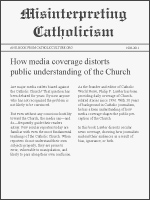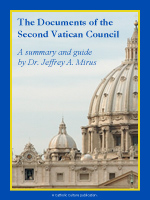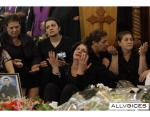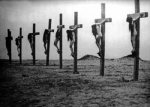From Christians Under Attack:
21 March 2012
Christian family evicted from Egypt town

Nabil Gergis, a Coptic Christian, lived for nearly two decades in the Egyptian town of Amriya, raising his children and managing a modest business. Those ties
couldn't protect him after a sex video purportedly showing his brother with a Muslim woman began to circulate.
Angry residents in the conservative, Muslim-majority town held protests and set fire to the Gergis
family businesses. None of the attackers was prosecuted. Instead, a committee of tribal elders, local lawmakers and security officials ordered the 11 members of the Gergis family - the brother, Nabil and others - to leave town.
The story of Amriya demonstrates one of the reasons Egypt's Coptic Christian minority and even some in the Muslim majority feel the situation is precarious, particularly since the ouster of former President Hosni Mubarak a year ago. The rule of law, they and human rights groups say, is being eclipsed by such "reconciliation councils," trying to fill the security
vacuum left by Mubarak's fall.
"There is no law that would have found me responsible for anything, and under the law I would have never been kicked out of my home," said Nabil Gergis. He said he, his wife and their two children do not know who to turn to protect their rights and that he feels the government has turned its back on them.
Egypt's Copts are mourning Pope Shenouda II, who led the Church for 40 years and died on Saturday. "Baba Shenouda," as he was called, was seen by many in the community as their biggest protector in a country where Christians make up about 10 percent of a population of 85 million.
Shenouda's approach was deeply conservative. He was a close ally of Mubarak during the former president's 29-year rule and used his influence behind the scenes to try to ensure some protections for Christians. But he largely resisted any public protests or pressure. His critics among the Coptic community say that left Christians' rights dependent on personal relations rather than enforced by law.
Reconciliation meetings were not unusual under Mubarak's regime. Muslim-Christian violence broke out occasionally in towns of the south, sometimes in local disputes that turned sectarian. Rather than prosecuting those responsible, local leaders and security officials would often insist on negotiated solutions to keep the peace - or, critics say, because they were reluctant to confront Muslims involved in the incidents.
The Amriya case was unique because the punishment was so extensive. The town is comprised of scattered villages with some 500,000 residents, about 15 percent of them are Christian.
The incident erupted in late January, when the explicit video allegedly showing Nabil Gergis' brother with a Muslim woman circulated on residents'
cell phones. The brother, who is married, has denied any affair.
Any sex outside of marriage is a lightning rod for controversy in the Muslim world, where a woman's chastity is vociferously protected by her family. That a Christian man might have an affair with a Muslim woman only further fanned the flames.
The rumors sparked widespread protests by Amriya residents, who are mostly tribal and deeply traditional. Angry residents set fire to three stores owned by the Gergis' family, which were under their homes. Some Muslim residents tried to help, but were outnumbered by the ultraconservative rioters.
Police showed up hours later and instead of investigating the attack called in the brother for questioning, Gergis said.
With tempers still high, local officials and tribal leaders held a series of meetings and decided to order the expulsion of the entire Gergis family. A Muslim family who had fired shots in the air during the protest to protect their property were initially told they must leave too, but were later allowed to return.
Amriya police argued that they could not guarantee the Gergis family's safety in the face of angry protesters, according to security officials and the Gergis family. Last week, with the family gone, their homes were robbed of cash and other belongings they had to leave behind, Gergis said.
An Egyptian rights group that looked into the case, the Egyptian Initiative for Personal Rights, criticized the expulsion, saying the victims were forced to accept "the outcomes of illegal reconciliation processes" and to abandon their rights.
Ishak Ibrahim, a researcher with the group, warns that the breakdown of security since Mubarak's fall could lead to an even greater dependence on such "reconciliation meetings."
"When the state's authority is eroded, then the community turns to its own leaders to solve the crisis," he said. "The problem is that the outcomes are not consistent. It also means that Christians or the side that is weaker will be at a disadvantage, and so this affects all Egyptians."
The unreliability of the law has hurt Christians in other ways. One sore point is the construction of churches, which requires permissions from security officials and was rarely granted. In response, Christians often built churches secretly, and in several instances in recent years Muslim mobs attacked the construction. Again, perpetrators of such attacks were almost never prosecuted.
Since Mubarak's fall, there has been talk of a law putting construction of mosques and churches under equal rules, but no law has been passed.
A series of attacks over the last year has also stoked Christian fears. A year ago, a Muslim-Christian love affair led a Muslim mob to torch a church in the village of Soul, 18 miles (30 kilometers) south of Cairo. Christians protesting the burning were attacked by a mob; 13 people died and 140 injured.
In May, ultraconservative followers of the Salafi trend of Islam burnt a church in the Cairo working-class district of Imbaba and clashed with Christians, leaving 12 people dead. Many of the rioters believed that a Christian woman who fell in love with a Muslim man had converted to Islam and was being held prisoner by the church.
In October, a Cairo protest led by Copts demanding greater rights was crushed by soldiers, leaving 27 people, mostly Copts, dead.
The Gergis family is now living with relatives in Alexandria. Nabil Gergis said neither the police nor government officials have responded to his pleas for help.
"The only thing that this means is that police don't want us in the country," he said. "It's a feeling that I cannot describe. My children don't have a home anymore."
http://www.kansascity.com/
09:30 Posted in
|
PermalinkTrackbacks
The URL to Trackback this post is: http://mychristianblood.blogspirit.com/trackback/2838911




 March 26, 2012
March 26, 2012


 (AKnews) - Four unidentified gunmen stormed a church in the Mansour district, western Baghdad,
(AKnews) - Four unidentified gunmen stormed a church in the Mansour district, western Baghdad,

 Vienna, Austria, Mar 21, 2012 / 12:02 am (
Vienna, Austria, Mar 21, 2012 / 12:02 am (